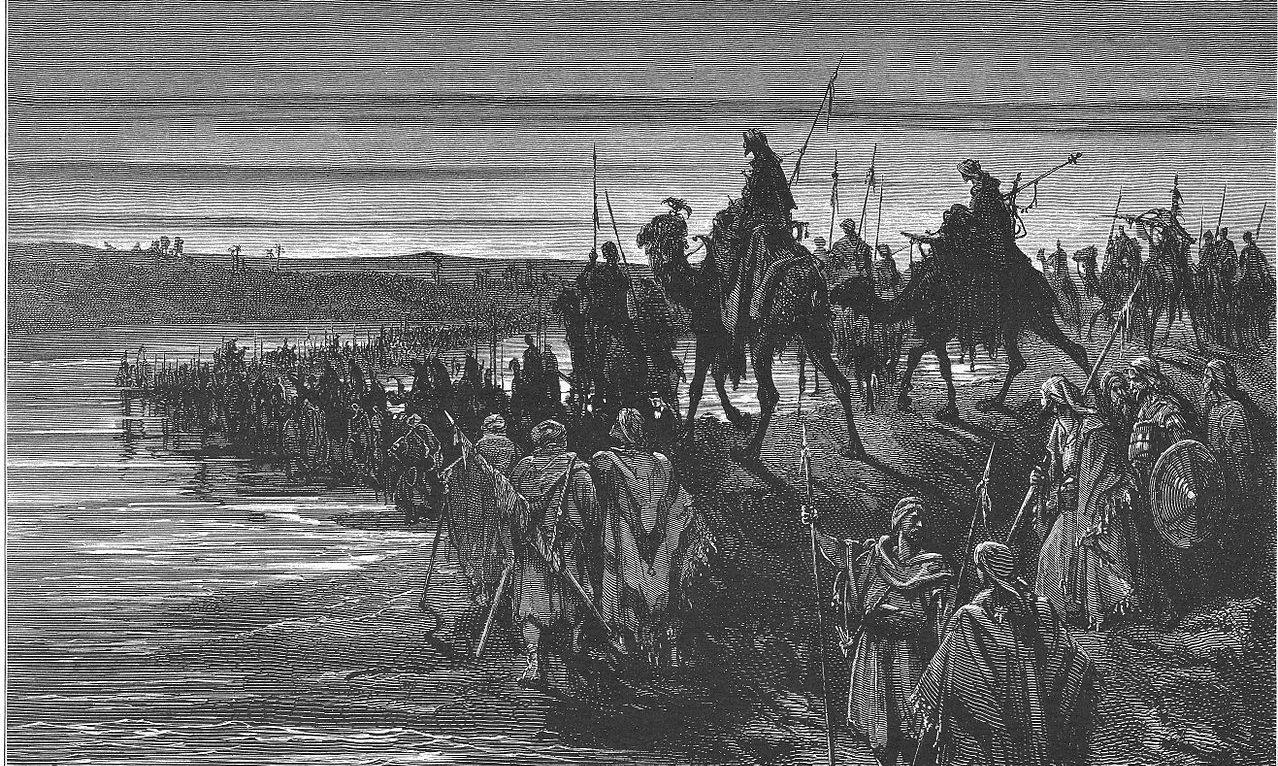“Why have you brought us up from Egypt to die in this desert, where there is no food or water? We are disgusted with this wretched food!” (Numbers 21:5).
It is safe to say that the Israelites passing through the desert would rather have been anywhere than where they were. In their best moments, they looked forward to the day when they would finally enter into the land God promised to their fathers. In their worst moments, they longed to return to the fleshpots of Egypt, even if it meant returning to slavery as well. Once the Israelites finally entered into the promised land, it’s likely that none of them were eager to go on any long desert journeys for a while afterwards.
But as unpleasant as something is while we’re going through it, there’s nothing like nostalgia to make you look back fondly on it. Hosea, living several centuries after the exodus, saw Israel’s time in the desert in a completely different light. Hosea saw it as a time when Israel may have been quick to turn away from God, but was also quick to turn back to God. In Hosea’s day, the people were perfectly willing to sin, but entirely unwilling to return to the Lord. All their success in the land had made them deaf to the word of the Lord, and they allowed themselves to become spiritually fat and lazy.
Hosea realized that, while the Israelites were in the desert, their need kept them faithful to God. They grew tired of the manna, they became thirsty and complained that there was no water, but this kept them in contact with God. In view of the unrepentant depravity of the people in Hosea’s time, God reveals how he will woo them again, “Behold, I will allure her, I will lead her into the desert, and speak to her heart… there she will answer as in the days of her youth, as on the day she came up from the land of Egypt” (Hosea 2:16-17). Indeed, the whole history of Israel, from taking possession of the land to the Babylonian exile, was a continual cycle of turning away and returning to God. When times were good, the people forgot the Lord whose blessing they enjoyed. When times were bad, they knew where to go for help.
Lent is meant to provide us with a desert experience, a time of need and lack that opens us up to God. However, as Lent comes rapidly to a close, it is helpful to remember that something of the spirit of Lent should remain with us year-round. St. Benedict told his monks that “the life of a monk ought to have about it at all times the character of a Lenten observance” (Rule of St. Benedict 49), but there is a sense in which this is true of all Christians. Even when our fasting is over, there is plenty to remind us of our need for God. Every setback, great or small, is an opportunity to be led out of self-sufficiency and to return to the desert. We should never allow ourselves to become so satisfied with this vale of tears that we lose sight of our heavenly homeland. “For that pure immortal gladness all our feast-days mourn and sigh” (Joy and Triumph Everlasting).
✠
Image: Gustav Dore, The Children of Israel Crossing Jordan.







